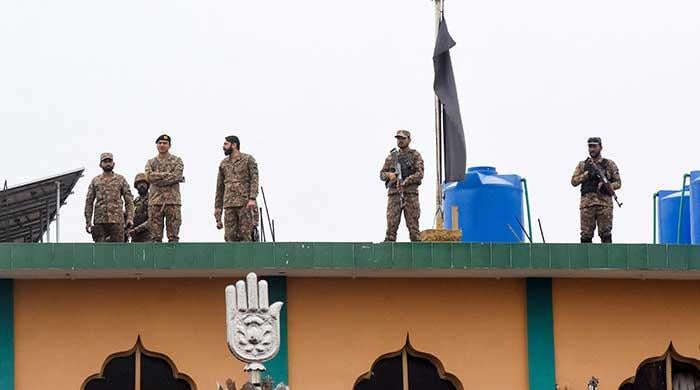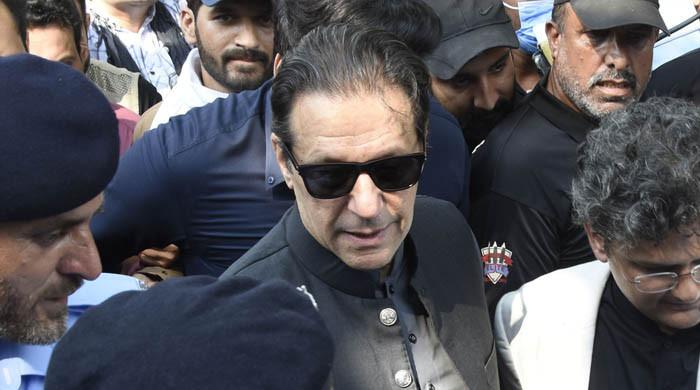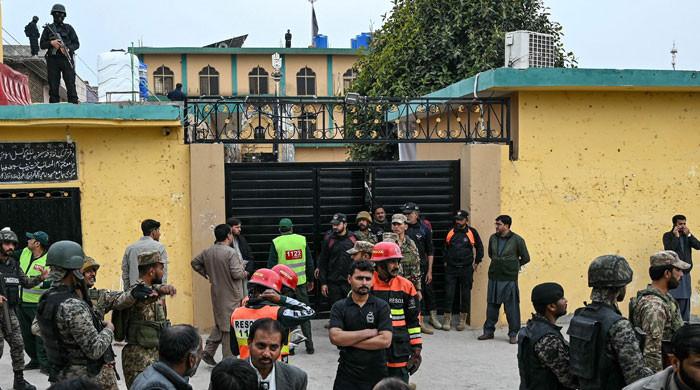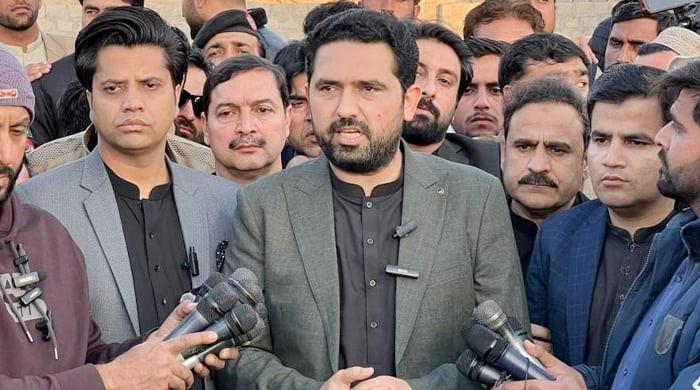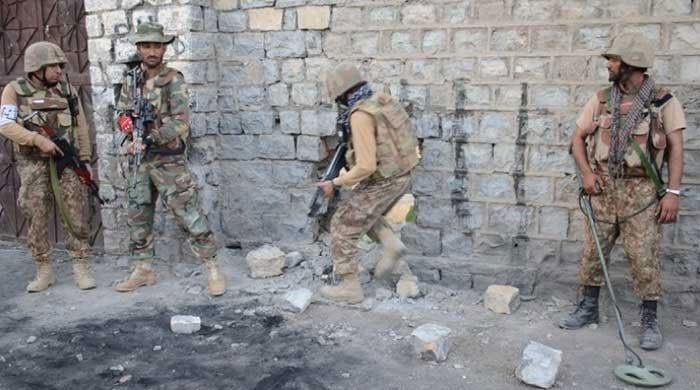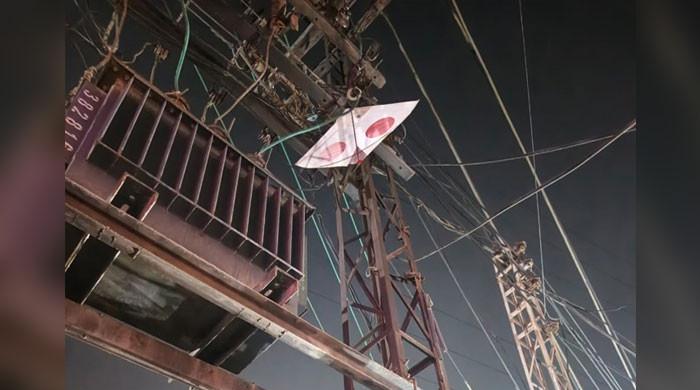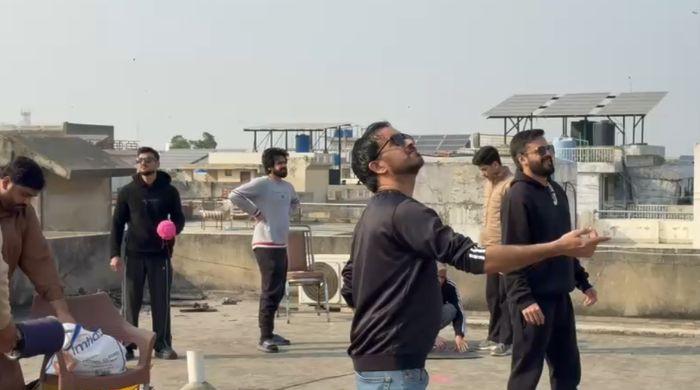Political parties have until tonight to canvass as ECP warns of action
No person shall convene, hold or attend any public meeting during for 48 hours starting from midnight, says ECP
February 06, 2024
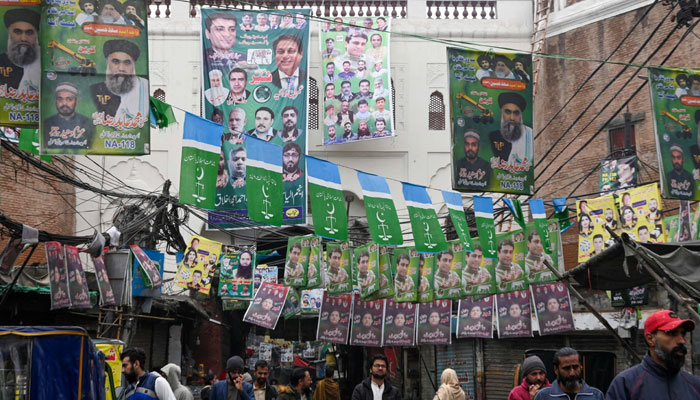
- ECP issues notification under Section 182 of Elections Act 2017.
- Candidates warned of legal action for violating the directive.
- ECP sought cooperation of media, public to ensure fair elections.
In line with the election laws, the Election Commission of Pakistan (ECP) has announced that electioneering for Thursday’s elections would end at 12 on the night between February 6 and 7, 2024, The News reported.
The ECP issued a notification in this regard, citing Section 182 of the Elections Act 2017, which prohibits any political activity after the specified time period.
Section 182 of the Elections Act, 2017 reads: “Prohibition of public meetings during certain period: No person shall convene, hold or attend any public meeting, or promote or join in any procession, within the area of a constituency or, in the case of the Senate election, a Province, during a period of forty-eight hours ending at midnight ‘following’ the conclusion of the poll for any election in that constituency or Province”.
Likewise, Section 183 reads: “Penalty for illegal practice: A person guilty of the offence of illegal practice shall be punishable with imprisonment for a term which may extend to two years or with fine which may extend to one hundred thousand rupees or with both”.
The ECP warned that any candidate, who would organise or participates in any meeting, procession, corner meeting or any such political activity after the deadline, would face legal action.
The commission sought cooperation of the media and the public to ensure a free, fair and transparent election process.
EMS
Separately, ECP Election Management System (EMS) Project Director Colonel Saad said on Monday a special network had been created while employing all international security standards.
Briefing the media about the EMS here, he brushed aside the concerns that the system might be hacked or results could be changed. He explained that the ECP had its own private network, and the system was not available on the internet. He dismissed the possibility of hacking the system.
He said only specific persons would be able to have access to the EMS, for which a dedicated network operation centre had been established.
“We have also got white-listed the mobile phones of presiding officers and everyone will not be able to access or use it,” he added. About a letter written by a returning officer (RO) of NA-197, he said his concerns had been addressed. He said had the RO contacted the district returning officer or approached the ECP helpline, his issues would have been addressed earlier. “However, I have talked to him and afterwards, he stated that the EMS is working very fine,” he added.
He said that 3000 laptops had been made available for EMS and 3,600 software operators hired and trained to facilitate the returning officers throughout the country. The project director said it was difficult right now to tell how much would be the total cost of the EMS. He said it was also not possible to give any final timeframe how long it could take for arrival of results.
However, he said five trials were conducted at different stages regarding the EMS and problems identified or confronted on the system had been resolved. He added that satellite connections had also been provided to the ROs.
ECP Info-Tech Director General Khizar Hayat said the EMS technology had been upgraded and it had been previously used in 40 elections. He said the presiding officer would send the results to the returning officer through the EMS. “If there is any issue in delivery of results, the presiding officer will personally convey the results to the returning officer. The EMS will immediately detect any changes in the results,” he added.
The National Operations Centre, he pointed out, had been built in accordance with the world standards, and that several power backups had been created to run the system, whereas the EMS backup servers are with NADRA [National Database and Registration Authority], which has 24 years of experience and resources from the government of Pakistan.




